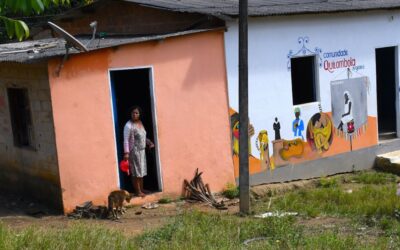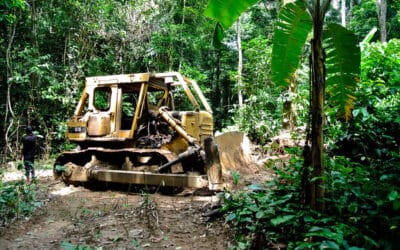Open Letter to the Asian Development Bank (ADB)
To: Mr Masatsugu Asakawa, President, Asian Development Bank, Manila, Philippines
19 October, 2023
Dear Mr. Masatsugu Asakawa
Subject: Coal exit must not entail support of the false solution of wood bioenergy
We welcome the efforts of the Asian Development Bank (ADB) in revising its energy policy to respond to the much-needed transition of the energy sector in Asia Pacific through the R-Paper, Energy Policy Supporting Low-Carbon Transition in Asia and the Pacific (September 2021). However, we also convey our deep concerns at some of the aspects that the energy policy deals with regarding phasing out of fossil fuels, coal in particular, promoting false solutions and pathways to energy transition. Our concerns extend to the ambiguity and opaqueness in the subsequent processes of establishing the Energy Transition Mechanism (ETM), and the support ADB is providing for the development of Just Energy Transition Partnerships in the region and the limited circulation Working Draft for Consultations with Civil Society Organizations on Climate Change Action Plan 2023-2030.
While ADB’s support for the early retirement and decommissioning of coal resources to help Developing Member Countries (DMCs) achieve a planned phase-out of coal in the Asia and Pacific region is in the right direction, its policy principle of support to biofuels, carbon capture, use and storage, and use of feedstock such as bioenergy is deeply troublesome, dilutes the principle of just energy transition and in no way supports a Paris Agreement pathway to keep world temperature to 1.5 degrees.
Co-firing coal power generation with biomass entrenches the use of coal rather than hastening a phase out, contradicting the policy direction.
Biomass and biofuels sourced at volume from large scale plantations and natural forests is problematic for both climate and biodiversity as well as for local communities and must not form part of the ABD’s energy policy principle.
The IPCC Special Report on Climate Change and Land (2019) issued a strong warning that large scale bioenergy and BECCS is not a ‘get out of jail free’ card.
Generating bioenergy, specifically, from burning woody biomass has documented adverse impacts on natural forests, ecosystems and biodiversity, and on Indigenous Peoples, women in all their diversities and local communities.
Establishment of plantations to supply bioenergy has adverse biodiversity impacts as this entails conversion of biodiverse natural ecosystems to monocultures. This process creates large immediate emissions and resultant plantations are also less carbon dense, adversely affecting natural carbon storage.
As the IPCC pointed out in its Special Report on Climate Change and Land, large scale monoculture plantations for bioenergy would also affect food security and water availability.
Demand for biomass can exacerbate conflicts over land and forest resources, including land grabbing. This threatens rights, interests, lives, livelihoods and cultural values of indigenous and tribal peoples, women and local communities.
Burning wood for energy immediately releases at least as much carbon to the atmosphere as does burning coal, and is usually more emissive than coal. This makes its use in large centralised energy generation unacceptable as a climate solution. It also makes claims to “abatement” fanciful and misleading.
The regrowth of forests is often cited by proponents of bioenergy as rendering this energy source carbon neutral, but in actuality any such regrowth and therefore any removals of carbon from atmosphere to compensate for those emissions lags behind by many decades or even hundreds of years, if it actually occurs. This is obviously outside of Paris Agreement timeframes. In the meanwhile ongoing logging for biomass continues to degrade and deforest, confounding claims of carbon recovery.
We, therefore, emphasise that it remains a priority to end coal fired generation but that substitution by woody biomass is a false solution.
Which brings us to draw your attention to the Just Energy Transition Partnership with a Secretariat established in Indonesia and the continuing ambiguity that remains in the limited circulation draft on ADB’s Climate Change Action Plan on accelerated retirement of coal fired power plants.
The draft plan states, ‘actions shall be prioritized to pursue rapid and scalable mitigation and adaptation impacts, such as accelerated retirement or repurposing of large-scale coal and other fossil fuel power plants’, without clarifying what does “repurposing” actually mean when applied to activities under the Climate Change Action Plan. We apprehend that this word “repurposing” will extend the life of the coal fired stations and such repurposing in the guise of using biomass, biofuels etc will claim to render coal abated and, therefore, will be recognised as outside the ambit of phasing out.
We are deeply concerned with this development and the possible impact of “repurposing” since the Indonesia-Just Energy Transition Partnership (I-JETP) is silent on the modalities of the objective to phase out coal fired power stations and scaling up the use of clean energy.
In PT Perusahaan Listrik Negara (PLN)’s 2021-2030 Electricity Procurement Plan, it is mentioned that one of PLN’s strategies is the use of biomass fuel as an energy source. To that end, PLN has been fervently promoting co-firing, or the burning of biomass fuel alongside coal, in several Coal Power Plants (PLTU). Incidentally, the state owned PT PLN is the implementation agency of the I-JETP programme.
A Trend Asia report “The Looming Deforestation Threat from Energy Wood Plantation” addresses the issue. This report further states that as of May 2022, PLN has implemented co-firing in 32 coal power plant units. PLN claims that biomass co-firing can meet the target of new and renewable energy in the national energy mix of 23 percent by 2025. PLN requires the biomass to be supplied in a large and sustained amount. PLN’s initial estimate indicates that to sustain 10 percent biomass co-firing in 52 locations, on an annual basis it will need to procure 8 million tons of biomass from energy wood plantations and 900 thousand tons from so-called waste. According to Trend Asia’s calculation, assuming the use of wood pellet biomass for 10 percent co-firing, 107 PLTU units will require a total of 10.23 million tons of biomass per annum.
Trend Asia estimates that the total energy plantation area required is at least 2.33 million hectares, or 35 times the land area of the Special Capital Region of Jakarta. Developing such an extensive plantation area risk accelerating deforestation. That projection of deforestation in Indonesia for implementing co-firing with biomass in the 107 power plants comes out to be a staggering 2.1 million hectares per annum!
This in the context that CO2 emissions from those power plants would not be reduced either. The failure to include biomass emissions at the smokestack in energy sector accounts alongside those of coal does not make them disappear in reality, but it does allow a false impression of emissions reductions to be promulgated. That is not an acceptable basis on which to claim abatement.
ADB’s unqualified support for energy transition through support for repurposing coal plants, rather than closure, and lack of consideration for the resources and processes required to ensure redress and reparations due to surrounding communities along with comprehensive ecological remediation and rehabilitation, is of deep concern to us. Such coal repurposing plans affect the Philippines, Indonesia, India, Kazakhstan and Vietnam. Repurposing coal fired plants, or use of biomass to co-fire existing coal fired plants and extending the life of coal transforming it to so called “abated” coal from unabated coal, will result in continued fossil fuel emissions, exacerbate the climate crisis and have huge impacts on not only natural ecosystems but also the life and livelihood of Indigenous People, women in all their diversities and the local communities.
We, therefore, demand that the ADB:
- Recognise that its commitment to early retirement and decommissioning of coal resources is to achieve a coal phase out and that support to fuel switching via bioenergy co-firing (where wood and coal are burned together) is contradictory to and confounds this commitment.
- Avoid supporting coal project operators to proceed with pulling-out of aging or stranded assets without accountability especially through ‘repurposing’ schemes that rely on woody biomass or other co-firing options
- Exclude support for new wood biomass projects and divest from existing financing to wood biomass, including: 1) projects that allow fossil fuel project operators to ‘repurpose’ facilities via ‘fuel-switching’ to biomass and other resource and GHG intensive technologies, 2) projects involving energy generation from forest wood (including forest residues and wood from tree plantations), 3) BECCS, and 4) new feedstock supply chains for wood biomass facilities, including a) project harvesting wood for wood pellets, woodchip or log wood, and b) pellet mills.
- Identify wood biomass as a high-risk sector and conduct enhanced due diligence on all existing support to the sector during divestment from financing both coal and burning of woody biomass, to ensure the social and environmental impacts of both wood biomass facilities and feedstock supply chains, including degrading and destructive impacts on natural ecosystems and their biodiversity and the impact on communities, including Indigenous Peoples and women in all their diversities, will be halted and remedied.
Sincerely,
Asia Pacific Regional Biomass Working Group
Biomass Action Group (BAG), Australia
Bangladesh Working Group on External Debt (BWGED), Bangladesh
Coastal Livelihood and Environmental Action Network (CLEAN), Bangladesh
National Forum for Advocacy Nepal (NAFAN)
Forest, Environment Workers Union Nepal (FEWUN)
Environment East Gippsland inc, Australia
Fern (Brussels, EU)
NGO Forum on ADB (Regional)
Rivers without Boundaries Coalition
Oyu Tolgoi Watch Mongolia
Pakaid Organization ( Pakistan)
Sahabat Alam Malaysia (Friends of the Earth)
South Asia Just Transition Alliance (SAJTA), Regional
Aksi! for gender, social and ecological justice, Indonesia
Trend Asia (Indonesia)
Pivot Point, USA
HUTAN Group(JAPAN)
Africa Regional Biomass Working Group
Latin American Regional Biomass Working Group
Global Forest Coalition
FOE Japan
Mekong Watch
Mighty Earth
PACOS Trust
Healthy Indoor Environment
C.C.
Mr. Priyantha D.C. Wijayatunga, Senior Director, Energy Sector Office, ADB
Mr. Pradeep Tharakan, Director, Energy Transition, Energy Sector Office, ADB
Mr. Andrew Jeffries, Advisor, Just Energy Transition Partnership, Energy Sector Office, ADB




